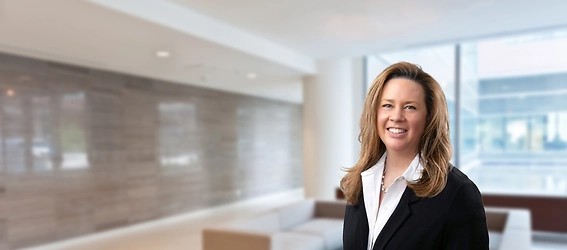Last Friday, the Small Business Administration (SBA) issued a much-anticipated procedural notice regarding changes of ownership for Paycheck Protection Program (PPP) borrowers. The notice defines what constitutes a “change of ownership,” and under which circumstances pre-approval by the SBA must be obtained.
Background
Section 7(a) of the Small Business Act, 15 U.S.C. § 636, empowers the SBA to “make loans to any qualified small business concern” and serves as its primary program for providing financial assistance to small businesses. As part of the Coronavirus Aid, Relief, and Economic Security (CARES) Act, Congress amended Section 7(a) of the Small Business Act, and created a new program for lending to small businesses and nonprofits during the COVID-19 pandemic, known as PPP. Given that PPP is an outgrowth of the SBA’s Section 7(a) loan program, the SBA has applied certain of its existing 7(a) rules to the PPP program. In other instances, it has issued interim final rules, notices, or other guidance which have differed from its traditional 7(a) loan program.
Change of Ownership Quandary
Under the 7(a) loan program, “any adjustment to or change in the ownership of a Borrower, including a change in percentage of ownership” must be pre-approved by the SBA if it occurs prior to loan closing or within one-year of final disbursement. This requirement is found in a servicing and liquidation 7(a) lender matrix which is referenced by the SBA’s Standard Operating Procedure (SOP) 50 57 2.
On July 23, 2020, the SBA issued Procedural Notice No. 5000-20038 which provided, among other things, that “PPP Lenders are responsible for servicing PPP loans in accordance with SBA SOP 50 57, as amended.” It noted, however, that “the SOP applies to the servicing of PPP loans, to the extent that the SOP is not superseded by or in conflict with PPP-specific requirements.” This circular pronouncement begged the question—are PPP-specific requirements different than those found in SOP 50 57 2 for borrower changes of ownership? The answer to this question became all the more important as the SBA utilized its standard loan note for PPP, which provides that a borrower is in default if it “[r]eorganizes, merges, consolidates, or otherwise changes ownership or business structure without Lender’s prior written consent.”
New Change of Ownership Notice
Friday’s Procedural Notice No. 5000-20057—which comes more than six months after the program began—is long overdue guidance for borrowers and lenders, as well as potential investors in, or acquirers of, companies receiving PPP loans.
"Change of Ownership" Defined
The notice first defines what constitutes a “change in ownership” for purposes of PPP. This occurs when: (1) 20% or more of the common stock or ownership interest of a PPP borrower is sold or otherwise transferred; (2) 50% or more of a PPP borrower’s assets are sold or transferred; or (3) a PPP borrower is merged with or into another entity.
Such changes need not occur in a single transaction, but rather include all sales or other transfers since the date that the borrower’s PPP loan was approved. In addition, ownership transfers include transfers to an affiliate or an existing owner of the PPP borrower.
When SBA Pre-Approval is Not Required
Not surprisingly, if the PPP note has been repaid in full (by the borrower or the SBA through loan forgiveness) prior to the consummation of the change of ownership, then no SBA restrictions apply to the change of ownership. If, however, a borrower has submitted for loan forgiveness and its application remains pending (and, as a result, the PPP loan has not been repaid in full), then the restrictions discussed below would apply. Given that a borrower’s lender and the SBA can take up to a combined 150 days to process a loan forgiveness request, this waiting period may prove frustrating for borrowers engaged in a transaction that would constitute a change of ownership under the SBA notice.
The SBA does, however, provide certain exceptions and workarounds that may allow borrowers to avoid SBA pre-approval for a change of ownership.
First, a change of ownership that is structured as a sale or other transfer of common stock or other ownership interest or as a merger, in which 50% or less of the common stock or other ownership interest is transferred does not require prior SBA approval, so long as such transaction is approved by the borrower’s lender.
Second, subject to the approval of the borrower’s lender, SBA approval would not be required for any change of ownership (including a sale of assets) if the borrower (a) submits its completed loan forgiveness application to the lender and (b) funds an interest-bearing escrow account controlled by the PPP lender with an amount equal to the outstanding balance of the PPP loan. In general, this is a sensible solution as it allows transactions to continue in the normal course without SBA involvement, while protecting the SBA’s risk through the creation of a lender-controlled escrow account until the forgiveness process is completed. However, it creates some risk in the change of ownership transaction related to the possibility that the loan forgiveness is not approved or the interest accruing on the escrow account is less than the accrual of interest on the PPP loan. These risks would need to be addressed in the definitive agreements related to the change of ownership.
When SBA Pre-Approval is Required
If a change of ownership does not qualify under either of the exceptions to SBA approval described above, in addition to obtaining the consent of the PPP lender, the borrower would be required to obtain the prior approval of the SBA for the change of ownership and the SBA will review and provide a determination of that request within 60 days. In such cases, the borrower would be required to explain why it cannot satisfy the PPP loan in full or provide escrow funds sufficient to satisfy the PPP note and it must deliver a variety of additional documents and information to the SBA. Any approval of a change of ownership involving a sale of 50% or more of the PPP borrower’s assets would also be conditioned on the purchasing entity assuming all of the PPP borrower’s obligations under the PPP loan, including compliance with PPP loan terms.
Conclusion
Unlike the restrictions on a typical SBA 7(a) loan (which require SBA pre-approval of change of ownership transactions consummated within one year of the loan’s inception), the rules for PPP loans apply to changes of ownership throughout the PPP loan’s term, which is up to five years. That said, the SBA’s procedural notice outlines certain practical steps that sellers and buyers can take which will allow change of ownership transactions to go forward without unnecessary delay due to needed SBA action.
Potomac Law Group represents borrowers, lenders, and other parties in connection with Paycheck Protection Program loans, as well as a wide range of merger and acquisition transactions. To learn more about the issues raised by this client bulletin, please contact Derek Adams at dadams@potomaclaw.com or Julie Vinyard at jvinyard@potomaclaw.com.
Note: This publication is distributed with the understanding that the author, publisher and distributor of this publication and/or any linked publication are not rendering legal, accounting, or other professional advice or opinions on specific facts or matters and, accordingly, assume no liability whatsoever in connection with its use. Pursuant to applicable rules of professional conduct, portions of this publication may constitute Attorney Advertising.



